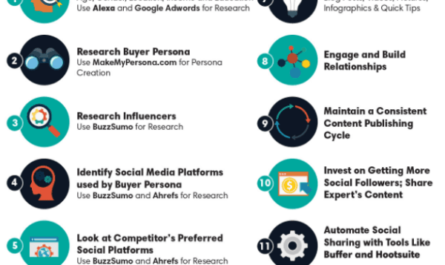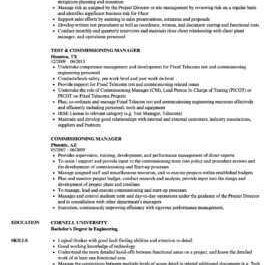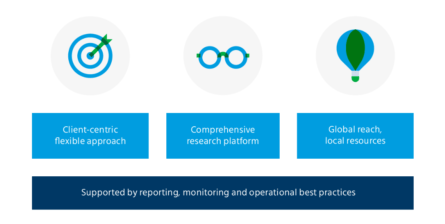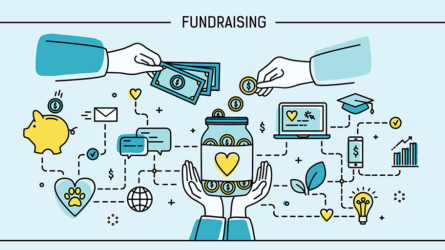Are you in the hospitality industry looking for ways to cut costs? and improve efficiency? here are 10 compelling reasons why your hotel should go green.
Green represents a way of life that contributes to maintaining the natural ecological balance in the environment and also contributes to the preservation of the environment. The planet, its natural system and its resources.
It’s no secret that hotels can be a waste, as the average guest throws about 2 pounds of paper, plastic, cardboard, and cans in the trash every day. However, consumer needs are constantly changing, and in recent times consumers have become more aware and concerned about environmental issues, and as a result, the demand for environmentally friendly products and services continues to grow.
In fact, around 76% of travelers say adopting environmentally friendly practices is important in their accommodation choices; in contrast, 46% of European business travelers say that their company’s environmental policies have a direct impact on their travels.
In many industries, there is pressure on them to be greener by going the green route. In the hospitality industry, organizations large and small have started to actively seek green ratings and certifications for their hotels. Here are 10 reasons why hotels should go green:
10 compelling reasons why hotels should go green
1. Long-term monetary gain
One of the key areas of green technology is the efficient use of resources. These technologies reduce the consumption of resources, which saves the hotel money in the long run. For example, replacing standard incandescent bulbs with more durable and efficient bulbs is quickly becoming a very popular way to reduce hotel energy bills.
A standard fluorescent lamp consumes 60W and an LED (the LED lamp can consume 6-8W of energy to generate the same amount of light (800 lumens) According to the DesignRecycleInc comparison table, the typical amount of energy used by 30 bulbs at Standard incandescent per year is 3,285 kWh If your energy consumption was 10 cents per kilowatt hour, that would mean those bulbs would cost you $ 328.50 just to keep the lights on.
In contrast, the same number of LED bulbs will only consume around 329 kWh of energy per year, according to the comparison table above. That would mean that for the same rate of energy consumption of 10 cents per kilowatt hour, running LED lights would only cost $ 32.90 per year, or one tenth of the cost. viewport-2 ai-viewport-3 ‘style =’ margin: 8px 0; clarify both; ‘>
As a bonus, your hotel won’t have to replace its bulbs nearly as often, with LED bulbs averaging 50,000 hours and a meager 1,200 incandescent bulbs. This means you have to pay for parts and labor to replace an incandescent lamp 41 times before you buy a replacement LED lamp and replace it throughout the house.
In conclusion, many green technologies can become self-regulating. -finance by reducing the operating costs of your hotel. There are many other examples of green technologies that help reduce energy costs, such as low water consumption washing technology, solar panels that can be used to reduce reliance on external energy, and automated systems. who can turn off electronic devices in the room when there are no guests.
2. To attract more customers
As mentioned earlier, consumers are increasingly aware of the importance of protecting the environment. Many hotel guests want to stay in a green hotel because it lets them know that they are helping the environment. Green certification allows hotels to attract these eco-friendly guests to their location.
This can help separate your brand from less sustainable hotels. By being green, you open up your hotel to a segment of the population that you might never have access to, which helps you grow your brand.
Even among less environmentally conscious travelers, good public relations is associated with securing a spot on green business rankings like the one published by Newsweek. In addition, customer loyalty tends to increase when customers are introduced to a hotel that has proven a certain level of commitment to the environment.
According to a study published in the Harvard Business Review, 64% of consumers say their brand loyalty is driven by values shared with the company. If you include lasting values at the heart of your brand, you can use them to attract repeat customers who come back. to you for more information and to recommend your hotel to their friends.
3. Compliance with new environmental regulations
The fact that more customers are becoming greener is not the only factor driving environmental decisions. As the public becomes more sensitive to the Earth’s environment, politicians are also paying attention by passing new laws and regulations to limit pollution.
In some cases, however, new rules may be adopted to deal with a particular emergency. For example, in California, United States, the population has been living with severe drought for several years. This drought eventually became so severe that the governor declared a state of emergency, adding new restrictions on water use statewide and fines for violators. Several hotels in the region have turned to new, virtually waterless washing technologies for their in-house laundry operations so they can continue to provide guests with fresh linens.
Although the governor only requested a 25% reduction in water consumption, washing systems based on polymer beads reduce water consumption by up to 80% compared to traditional washing systems. . By using green technologies and practices, hoteliers can be better prepared for any new upcoming environmental stress that may arise in the future.
4. Many hotels already accept it . More recently, the world’s largest travel website, TripAdvisor launched the GreenLeaders program (first in the US and Canada, then in Europe and the UK), in fact, they rated hotels as theirs. environmental references.
And when the big hotels start typing about it, it’s worth a look. But even long before TripAdvisor, there were many green certification schemes in the industry. Travelife, for example, is a collaborative initiative backed by leading travel trade associations and major tour operators such as Thomas Cook, TUI and Kuoni, which rewards hotels for meeting important standards.
Other popular programs include Green Key. an ecolabel in Europe, LEED (Leadership in Energy and Environmental Design) in the United States or an ecotourism program in the United Kingdom. Traditionally, certification programs have been used primarily as a tool to improve business performance; they are now the same public relations and marketing tool for potential hotel guests.
Sustainability or sustainability is more than a trend and it is now part of our culture, affecting individual, local and corporate initiatives. …
Businesses of all sizes are unlikely to avoid incorporating a green approach into their overall strategy. People have become more aware of environmental issues and themselves, whether they like it or not, are forced to apply more sustainable practices in their daily lives.
5. It gives you a competitive advantage.
Hotel chains have long discovered sustainability as a point of sale. However, a recent article in UK newspaper The Guardian says that boutique-style hotels, not big chains, are a real growth driver.
Quoted in the newspaper, Willie Legrand, a university professor of hotel management, said best practices are currently being applied in small boutique hotels, mainly because they are often independently owned and managed, many of which reflect the personality of the hotel. owner.
Besides product differentiation, a competitive advantage can also be gained through recognition of your green efforts. The green awards and recognition spread the word about the hotel’s efforts and attract new clients such as companies looking to do business with socially responsible companies.
6. Reverse the effects of climate change
There is no doubt that human activities are having a huge impact on our atmosphere as we are seeing more super storms, sea level rise and glacier shrinkage. Every day, emissions of carbon dioxide, methane, nitrous oxide and other pollutants are pumped into the atmosphere.
These emissions alter the gas balance and cause climate change, global warming and the depletion of the ozone layer. The only way to reverse these effects is to reduce emissions. Sustainability can help reverse the trend of climate change in today’s world.
7. Benefit from tax credit systems
Most countries have introduced financial incentives for businesses to encourage recycling and environmentally friendly business practices. Companies can request free carbon surveys, isolation quotas, etc. price.
8. Employee retention
There is no doubt that working for a bigger reason worries employees. Many employees prefer to work in an environment where sustainability is embedded in the corporate culture, which is a benefit in attracting and retaining employees.
9. Brand reputation and publicity . Fostering positive relationships with consumers through sustainable initiatives creates brand value and improves the image of the company.
10. Green goods are more human: just like materials and energy, everything requires another common resource: the human race. When you choose eco-friendly and ethical products, you are often providing support to local and global artisans and communities. Supporting fair trade products and fair labor practices ensures that products from coffee to clothing are not born in a sweatshop.
Sustainable development is one of the most important global challenges the world faces today. Climate change, global warming, air pollution, water conservation, waste management, deforestation and loss of biodiversity are some of the pressing issues affecting societies and businesses around the world whole.
Here are some steps a hospitality business can take to go green.
a. Replace disposable plastic coffee capsules and bleached paper filters.
b. Replace disposable cups with ceramic or glass cups: so this switch can eliminate disposable cups, especially polystyrene, which contains many toxins and takes a long time to degrade. Hotel guests can either sip coffee in their room with glass or ceramic mugs or fill a mug. You can also take the initiative and sell reusable travel mugs.
vs. Replace the garbage in your rooms with waste sorters: You can improve food recycling while saving your staff time by replacing the bins with a simple waste sorting system. You can get a wooden basket with two plastic baskets.
In one you can mark it as a regular trash can, and in the other you can use recyclable paper and plastic. With this simple technique, your employees don’t have to waste their time sorting the waste, because the customers will do it themselves, and the customers will see for themselves that the hotel is taking an active step towards sustainable development, and they will appreciate it.
re. Dispose of toiletries in small plastic bottles: while toiletries such as shampoos, conditioners, lotions, shower gel, hand soaps, etc. replenishing and cleaning every now and then costs less and generates less waste.
e. Replace plastic laundry bags with cloth bags that guests leave or stay in the hotel room at the end.
F. Switch to a key card system that turns on lights and air conditioning: Sometimes customers can be careless and forget to turn off the lights or the air conditioner when they go out. This problem can be solved with a key card which, when installed in a wall unit, allows you to control the lights and air conditioning, and when the key is removed, the lights and utilities are turned off.
g Take a garden of hotel: a garden of hotel reduced logistics costs and provides customers with a visual confirmation that some of the foods they receive are of local origin.
h. Save energy: you can do it,
- switch to a light emitting diode (LED) to reduce energy consumption and reduce carbon dioxide emissions
- train your employees to turn off lights and turn off heating or air conditioning when the room is not occupied.
- Installation of window films to reduce heating and cooling loads and reduce glare in rooms.
- Use a properly insulating and reflective coating
- Replace old washing machines with models that save water and energy
I. Pure Green: Use non-toxic hotel cleaners, disinfectants, paints, pesticides, etc.
j. Offer discounts for eco-responsible groups who want to use your hotel for their stay or meetings.
k. Engage your customers: hotel guests play a very important role in your sustainability strategy. For example, towels, heating and air conditioning bills are largely in the control of customers, so the role of these customers is to help put these green actions into practice.
However, some guests may not have sustainability in mind. You can encourage them by placing small index cards around the room to thoughtfully remind them of wasting water and using electricity. In addition to the potential savings if you go green, involving guests in your hotel practice can also foster an increasingly close relationship with you and your guest.









































